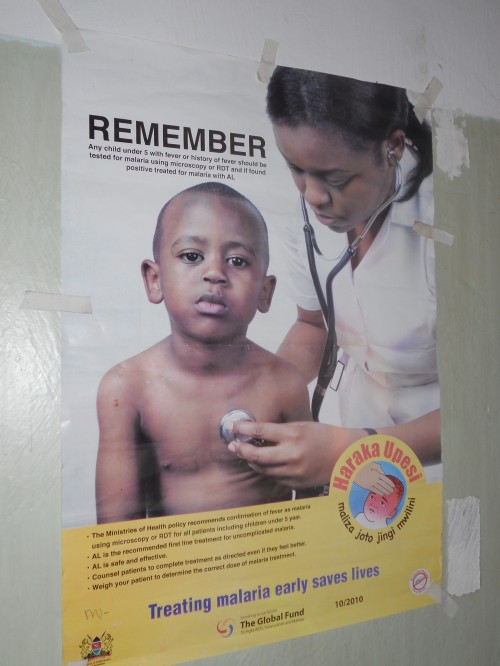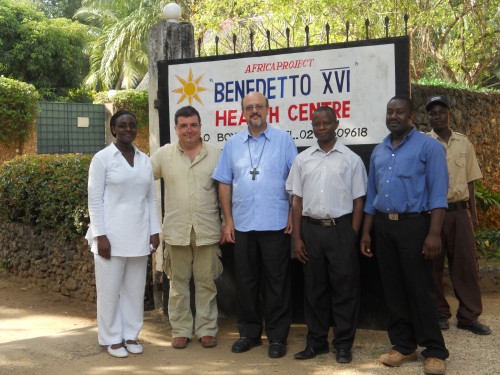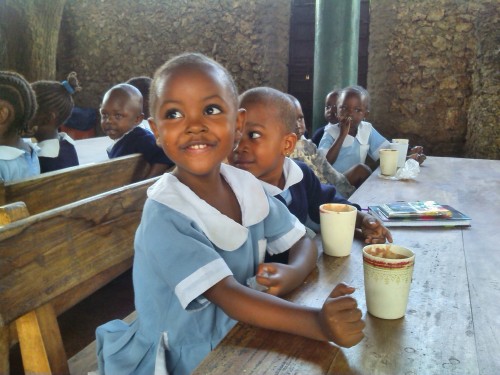Benedicto XVI Health Centre is a registered health institution that offers comprehensive health care services to patients in a twenty four hour basis.
The health centre is headed by a well trained and qualified clinical officer who works with the assistance one other clinical officer, two nurses, a laboratory technologist, two counselors, four nurse aids, one receptionist and one accounts clerk. The hospital has got various departments that carry out different activities to ensure that we offer holistic health care services to our patients.
Consultation
This is the department whereby the patient is first seen by the clinician, a comprehensive patient history is taken that is the current complain, old existing medical problems both chronic and acute, family history to rule out conditions that run in families, drug reactions and allergies. From this the clinician is able to determine kind of treatment to give to the patient.
Emergency Room
This is the department whereby we receive patients who have had accidents, injuries and are bleeding and those that are very sick and require quick treatment to save life. In this department we ensure that we have all the emergency drugs, first aid kits and airways to help very sick patients with breathing problems.
Here we are also able to carry out minor surgical procedures like circumcision for boys, incision and drainage of abscesses and suturing of cuts.
Laboratory
Our laboratory is set to perform most of the daily analysis that is on specimen like urine, blood, stool, sputum. However we have the challenge of putting in more machines to do the analyses to a more advanced level especially as we are with HIV and HIV related conditions.
Tuberculosis clinic
We are currently a government appointed Tuberculosis testing site and therefore working in collaboration with the Ministry of Health through the Malindi District Hospital through this we have also become a Tuberculosis treatment site and this has increased our value as a HIV management site. Currently we run an average of …… TB tests in a month.
Observation room / ward
This is the sleeping area whereby patients that require to be observed for a longer period by the clinician are admitted. Patients receiving parenteral medication are admitted here and are observed by a nurse who reports the patient’s progress to the clinician. The area is divided to create privacy for the men, women and children.
Ante Natal Care /Family Planning
This department offers care to pregnant women from conception until they are ready for delivery. Here we ensure that we take the full obstetric history of mothers so as to ensure that we minimize the chances complications in pregnancy and also at child birth. In this department we also do family planning counseling whereby we help couples to make informed decision on family spacing on the number of children they desire to have. We provide both natural and artificial methods of family planning as our hospital caters for the entire community that has various cultural and religious backgrounds, and also put into consideration the prevalence of HIV.
Voluntary Counseling and Testing For HIV
Our hospital offers voluntary counseling and testing of HIV whereby we are a government approved testing site. We have well trained and qualified counselors who work hand in hand with the laboratory technologist to ensure that clients receive authentic results for the tests. This is a very important department as it is from here that we identify and assist clients who test HIV positive to live a normal life through the use of Ante retroviral therapy that involves the use of both medicine and counseling. Clients that test negative are counseled on how to remain negative by adapting healthy lifestyle whereas those that test positive are counseled on how to accept the status and follow up is done to ensure they are following instructions given. We are working hard towards becoming a government approved comprehensive counseling and care provider whereby we will be able to provide total support to our HIV positive clients to include viral load tests,CD4 counting and dispensing antiretroviral drugs
Pharmacy
The hospital has a well stocked pharmacy whereby Africaproject ensures that they purchase all the drugs that patients do require. The pharmacy is managed by a nurse who dispenses drugs as per the clinician’s instructions. At the pharmacy we ensure that any drug allergies have been taken into consideration to prevent complications to the patients. We also ensure that the patients receive proper instructions on how to take the medicine dispensed.





